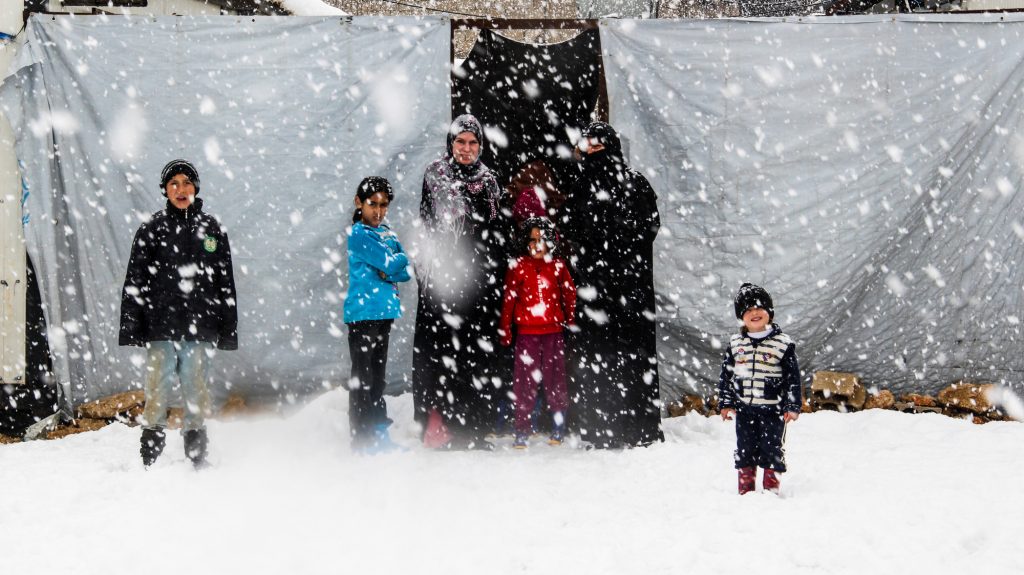Working with Orphans: A Field Research Trip to Lebanon
April 24, 2019
Islamic Relief Worldwide currently sponsors over 62,000 orphans around the world.
Of these there are approximately 1,500 orphans in Lebanon, whether Lebanese, Palestinian or Syrian.
Due to Lebanon’s delicately balanced demographic, the influx of refugees (who account for approximately one-third of the country’s total population) from all sides of its borders has heightened societal and political tensions.
Coupled with the high cost of living, orphans in Lebanon as well as widows often suffer most, and particularly those who are refugees.
While working on a research proposal concerning the Orphan Sponsorship Programme, we (the HAD Research and Development interns, Madiha and Alice) were offered the opportunity to visit orphans in Lebanon and learn more about the impact of the OSP there.
It was not something Alice or I expected to be able to do in the duration of our internship, largely because we are based in Research and Development as opposed to the International Programmes Division.
However, the trip was beneficial towards our work and inspiring in so many ways.
It’s important for research of any kind to serve a purpose, moreover research for a humanitarian organisation should serve to benefit the operations of the organisation.
Our purpose in Lebanon was to speak to beneficiaries of the OSP and find out how, if at all, their lives have been affected by the sponsorship, whether positive or negative.
We also met with several local organisations – some who are partners with IR Lebanon and assist in implementing the OSP and others who are independent of IR, who showed us the measures they are taking to assist vulnerable people and help them live with dignity.
The data we collected would allow us to assess how effective the programme is at present and, at a later stage, be used to inform changes and improvements to the programme.
Talking to beneficiaries, we saw the value they place on education and the pride they take in their achievements despite their struggles, despite their financial or health problems.
Take it from the Lebanese boy we met suffering from Parkinson’s, who recently received an award for wheelchair basketball.
But we also learnt about their fears: eviction from a tent costing $100 a month to live in, being bullied in school for being a refugee, or being assaulted on the way to school.
While conducting a home visit in Beqaa Valley, where a snowstorm was due later that day, refugees came out of their shelters to try to speak with us.
They had mistaken us for aid workers who had come to fix the problem of rainwater leaking into and flooding their homes.
Whether working in programmes or research, fieldwork is crucial for anyone looking to work in the humanitarian sector.
Not only did the data collection skills we acquired on the trip benefit us in our approach to our research project, but we were able to see something with our own eyes and not only on paper.
This is when you fully realise that the stories you see on the news are reality.
I think if more people met and spoke with beneficiaries, it would destroy the negative stereotypes about refugees and vulnerable people that currently infect the West.
All they really want, we learnt, is to stand on their own two feet and live with dignity. Amongst many others, we met a Palestinian widow, who is a qualified dentist and proficient in English – sadly, she is legally prohibited from opening a practice in Lebanon. This opened our eyes to the many obstacles these people face and how difficult it is for them to become independent.
Wherever we travelled (Tripoli, Akkar, Saida/Sidon, Beqaa), one thing that remained the same was the gratitude and hospitality we experienced, whether from local organisations or beneficiaries.
Hearing about their biggest struggles and their dreams for the future, it reinforces your appreciation and amazement at their strength and resilience and motivates you to do what you can to help them. It forces you to reflect and think: would I have the strength to raise my seven grandchildren if my children were all killed in Syria and we had to flee the country? Would I be able to help them through the psychological trauma they’ve endured and still greet everyone with a hug and a smile? Or would I just complain about how life isn’t fair?
“I wish I could give to a sponsorship programme myself because I know how important it is.”
Written by Madiha Sadiq
Research and Development Intern
Related articles:
Reflections from post-ISIS Iraq








